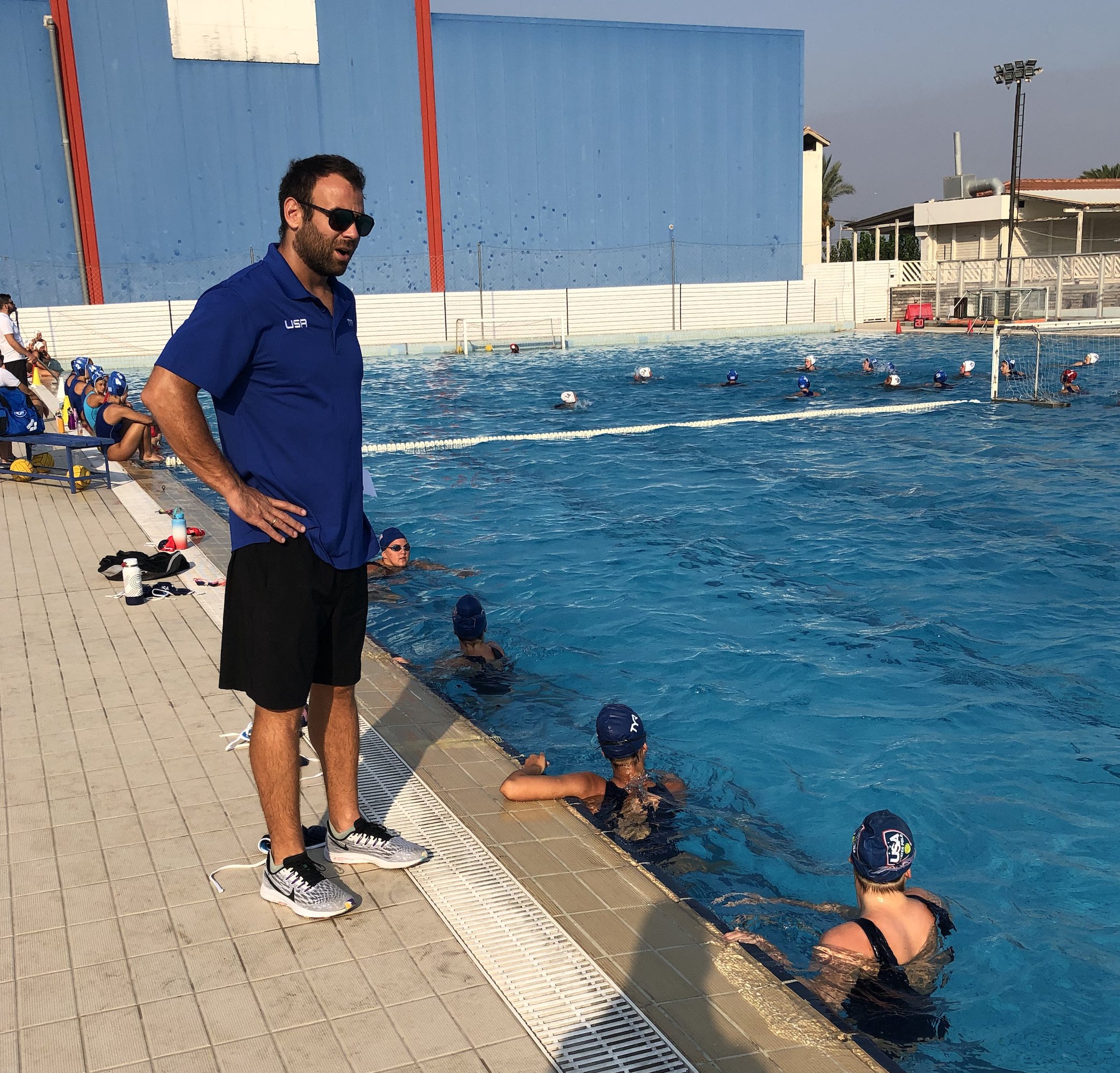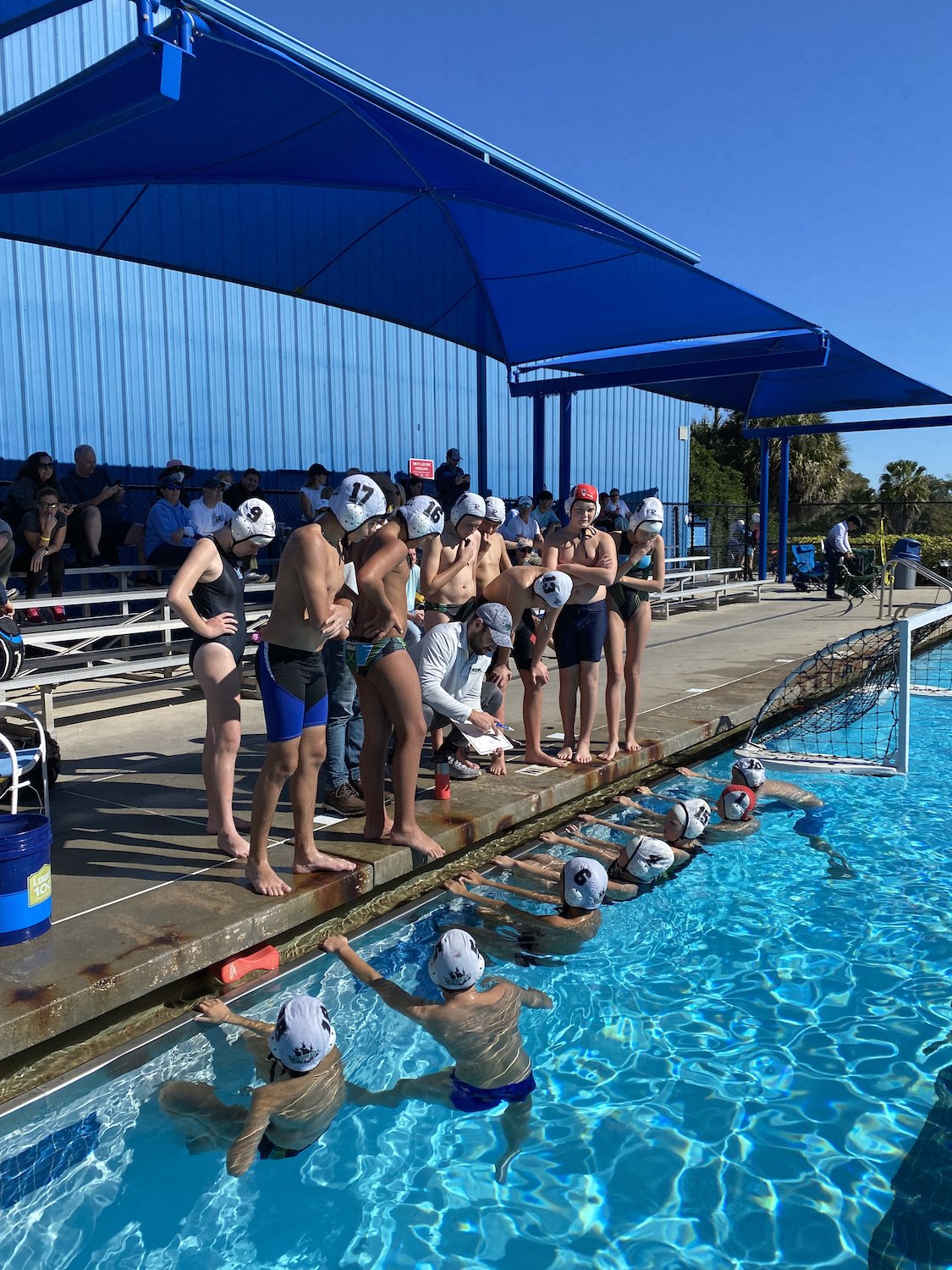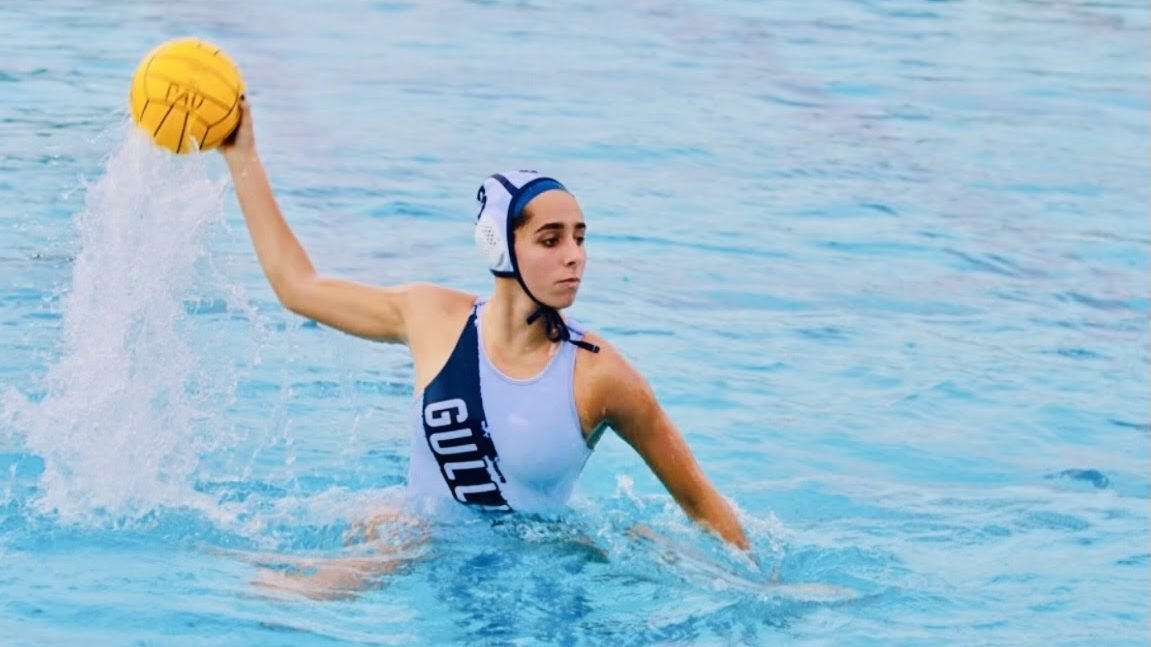On The Record with Petar Solomun of Raider / Ransom Everglades Water Polo
Petar Solomun in Greece with the U.S. Women’s national team program. Photo: USAWP
Editor’s Note: This past February 18 - 20, teams flocked to the Florida’s Coral Springs Aquatics Center for the South Florida International Water Polo Tournament. Now in its 19th year—after a break last year due to COVID-19—the tournament saw a return to form. Teams from all over the country participated in one of the country’s premier youth water polo events.
If one wonders why South Florida has emerged as the best water polo region in the East, look no further than the travels of Petar Solomun. A former Serbian and French pro polo athlete, six years ago Solomun and his wife Sanja Dzelebdzic arrived in the Washington D.C. area for Dzelebdzic’s medical residency. While there Solomun connected with Miras Jelic, who recruited him to coach with DC Capital, an age group club. Fast forward a few years and Solomun and his wife were on the move again, this time to Florida for Dzelebdzic’s pediatric cardiology fellowship.
Now in Miami, Solomun found new work opportunities—and recognition for his coaching efforts. The 34-year-old, now an assistant to Eric Lefebvre—head coach for the Ransom-Everglades School and Raider Water Polo—was recently named a recipient of USA Water Polo’s Doc Hunkler Distinguished Coaching Award, given annually to the top scholastic coach in each of the organization’s 11 zones.
[Don’t Look Now, But the South Florida Polo Scene Is Exploding]
Last month at the South Florida International Water Polo Tournament Solomun spoke about how his wife’s medical career has taken him to some of the East’s best polo spots, why Ashleigh Johnson’s success has raised Miami polo’s recognition nationally and how events like the SFIWP tournament create useful opportunities for East Coast athletes to improve their game play.
[In the Brilliant Florida Sun, Let the Games Begin… Again!]
- Born in Serbia, playing in Paris, you relocated to Miami from Washington D.C. How did that come about?
My wife’s a physician so I’ve been following her matching process. She matched for a residency in D.C., so we went there. Then she matched for a fellowship in Miami; that’s how we ended up here.
Through mutual friends I met Eric Lefebvre, head coach at Ransom Everglades. We talked and it didn’t take long to figure out we can work together—and that I could coach with the school and Raider Water Polo Club.
- Are working full time as a polo coach in Miami?
No. I’m interim dean of students at Ransom Everglades upper school and I coach both boys and girls polo.
- Florida polo is different than the sport on the West Coast and in Serbia—but it’s still water polo outdoors… all the time.
It’s different than Serbia, different than California, It’s different than the Northeast and Mid-Atlantic. The calendar [here] is completely different.
14U Raider Water Polo athletes earlier this year. Photo: Raider Water Polo
It’s been rough on us during the first year of pandemic. The number of kids coming to water polo has dropped down a bit. The level of water polo had dropped down a bit. I’m looking at other [sports] and it’s much the same. Everyone lost that year.
- Raider Water Polo is one of a number of Miami teams here at the South Florida tournament. Do you feel any pressure to succeed give that this tournament is in your club’s back yard?
There’s always a certain amount of pressure that Coach Lefebvre and I put on ourselves and our kids. Most of all we teach them to hold each other accountable.
There’s a lot of good clubs down here. Riptides and South Florida [Water Polo Club] are the biggest in the region. We also have Whitecaps and Storm in Miami, few clubs in Boca Raton area and quite a few from Orlando.
We are very competitive around here but we’re [also] friendly with other coaches. We talk a lot about what we can do to make [polo] better.
- Ashleigh Johnson went to Ransom Everglades for high school but played club ball with the Riptides—your club’s chief rivals. In some ways, she IS Miami water polo; what’s your take on one of the most Iconic water polo players every produced by America?
Ashleigh did go to Ransom Everglades, and she was coached there by Eric. She started water polo at Riptides, with coach Carroll Vaughn. I never saw her play in high school or college, but these last few years that I have [for the U.S. senior women’s team], she is one of the best that ever played the game.
[A Golden Journey: Ashleigh Johnson Has Shined As Backbone Of Team USA Water Polo]
- How does that Ransom Everglades connection help your recruiting?
Ransom Everglades and Raider Water Polo have had a good number of players at the collegiate level. I would say that our players can be interesting to college coaches.
- There’s also Cubans, many of whom live in Hialeah. They are another diverse group that is very passionate about polo.
Miami is very diverse, and the rivalries are pretty big. There are a lot of competitive private schools: us, Gulliver Prep, Belen Jesuit. Hialeah had been around for few years, their girls won states in 2018.
Unfortunately, they do not have a team this year.
[On The Record With Alex Donis, Coach for Hialeah Storm and Hialeah High School Water Polo]
Ramson and Gulliver Prep are down the street [from each other] and will always be rivals. It’s fun to play them no matter what the score is. I think we’re going to do a pretty good job keeping that rivalry up—with the coaches at other schools doing a great job.
- Three of those players from Hialeah are playing DI ball for the LIU women’s team.
It’s great that we have athletes playing DI ball. There are quite a few athletes from Florida; the three girls that you mentioned at LIU [Alejandra Aranguren, Paola Dominguez, Jeanette Garcia]. There’s Alissa Pascual who just went from Gulliver to Stanford. Matt Simko and Max Boucher are playing at Brown. You’ve got Nico Valls, who went to Ransom, playing at Santa Clara. Luksa Vlasic had an incredible season at Iona, There’s JP Pompa at Bucknell. Bruno Rebessi at [George Washington]. There are more who play DIII
Alissa Pascual competing for Gulliver Prep. Photo: Cristiana Pinciroli
Kids are playing [in college] and others are coming up.
We’re going in the right direction but there’s always things we can do to make it better. And it’s important that coaches, referees and officials talk regularly, which we do, to grow the sport more.
- Do events like the SFIWP tournament exist in Serbia?
They are from time to time, not as big as this. We do have high-quality tournaments but big like this? No.
At the end of the day Serbia is much smaller. It’s easy to gather up everyone for a weekend since they are all within a five-hour drive.
- Given your experience, is this the right way to grow polo on the East Coast?
What matters first is for kids to get into any sports [and for them] to have fun, even when they’re not playing. To have them hang out with their friends before and after the games and travel with your team makes it a lot of fun.
This is my fourth or fifth time in a row—I love this tournament. WE missed that one year [2021] due to COVID but since I moved to the States, I’ve been coming to this tournament with Capital and Raider.
Up in [the] Northeast and down here in the Southeast you play the same teams all the time. That gets dull; we’re doing the best we can but if there are four clubs, you’re going to play them a lot.
It’s a lot of fun to come down, play teams from the Bahamas, St. Louis, Chicago. Also, the Northeast is here: Capital, Navy, Greenwich, Brooklyn.
It’s a great experience for the kids and the coaches to play against teams that you don’t know that well.



